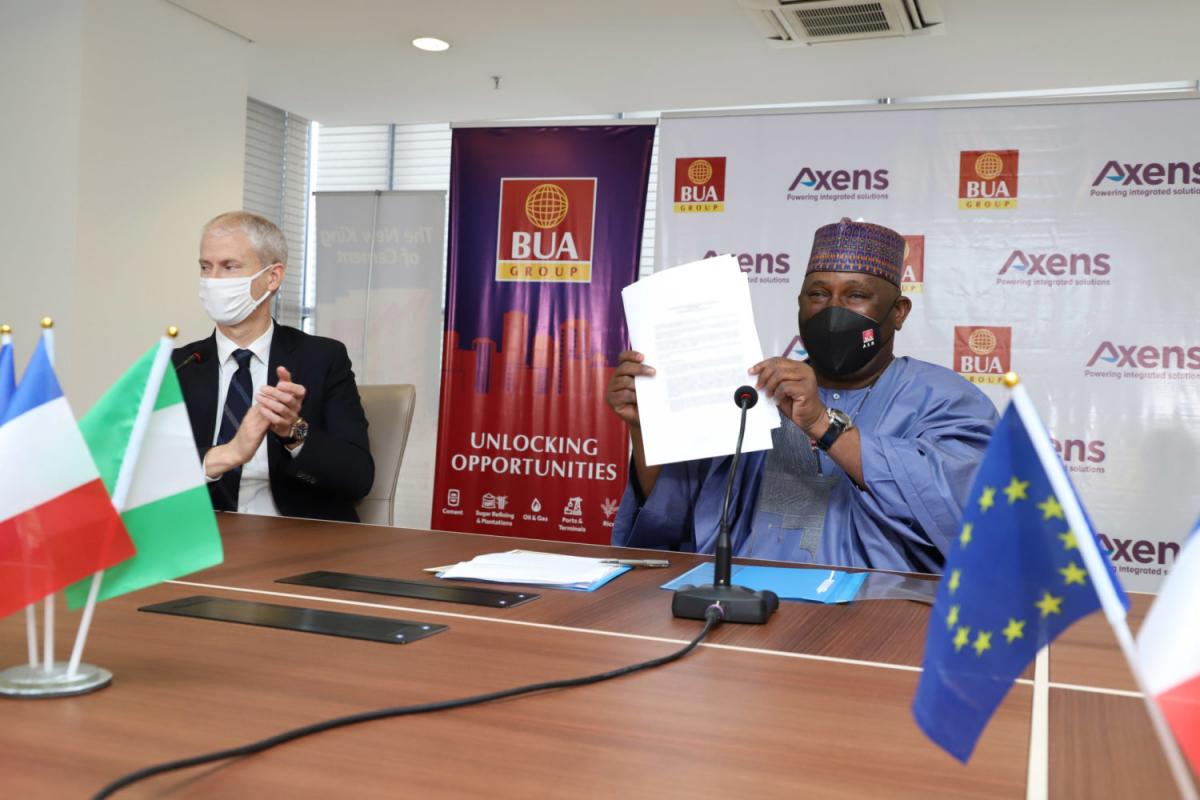There are no products in your shopping cart.
| 0 Items | £0.00 |


SUGAR mogul Alhaji Abdulsamad Rabiu has decried the cost of transporting goods within Nigeria saying the limited transportation facilities add dramatically to the cost of doing business and ultimately to the price of consumer goods.
Nigeria's third richest man, Alhaji Rabiu is the chairman of the BUA Group which currently has two ultra-modern and automated mega refineries that utilise state-of-art equipment to refine high quality products for consumption and industrial uses. A major player in Nigeria's national sugar master plan (NSMP), the BUA Group imports sugarcane into the country and ships it to its refineries.
Speaking at the recent Paris Peace Summit, Alhaji Rabiu narrated that it is cheaper to transport a container from China to Lagos than to transport same cargo from Lagos to Kano. Outlining the enormous opportunities to invest in the Nigerian transportation system, particularly rail sector, Alhaji Rabiu said cargo containers are transported from China and other countries by sea but then need to be mover overland once they get to Lagos.
However, Alhaji Rabiu commended the administration of President Muhammadu Buhari for prioritising the building of railways across the nation and called on global financiers and private investors to invest in the sector. He said there were also enormous opportunities in commercial agriculture with a lot of arable farmland in the country.
According to Alhaji Rabiu, Nigeria is also sitting on billions of tonnes of different mineral resources including limestone, which his company is well known for in the production of cement. He added that Nigeria is one of 12 countries in the world that has large deposits of iron ore, gas and coal but unfortunately the country is importing steel.
Alhaji Rabiu said: “Nigeria is sitting on 45bn tonnes of limestone and presently all the cement factories in the country combined are producing 30m tonnes of cement daily. We are able to produce for local consumption and also for export.
“One of my plants in Sokoto is exporting cement to Niger Republic which is about 120km to the plant and also to Ouagadougou, Burkina Faso, which is about 400km away from Sokoto. Now, we spend $2.5bn annually importing steel to Nigeria but with that money, we should be able to set up a plant that can produce up to 1.5m to 2m tonnes of steel per annum."
Adewale Tinubu, the chief executive of the Oando Group, added that as an investor, the reality is that if you are not in Nigeria, you are not in Africa. He said that in addition to a large population and market, there are skills and opportunities in Nigeria and potential investors should be part of the revolution.
Mr Tinubu added: “Seven years ago Nigeria was a net importer of cement when companies were shipping cement from Europe to dump in Nigeria. However, within the short period we convert the large limestone deposit in the country to a huge manufacturing sites.”
Jim Ovia, the founder of Zenith Bank said Nigerian banks are stable, strong, solid and ready to support investors. He added that the secret behind the stability of the nation’s banking sector was because the Central Bank of Nigeria was doing a great job in the area of regulation.
According to Mr Ovia, with the advent of the Bank Verification Number, the banking sector has entered the digital economy and it has made it easier for investors to track their investment and transactions, giving less chance to fraud. He stressed the need for quick deployment of the 5-G network technology, as it would revolutionise every sector and leapfrog the economy.